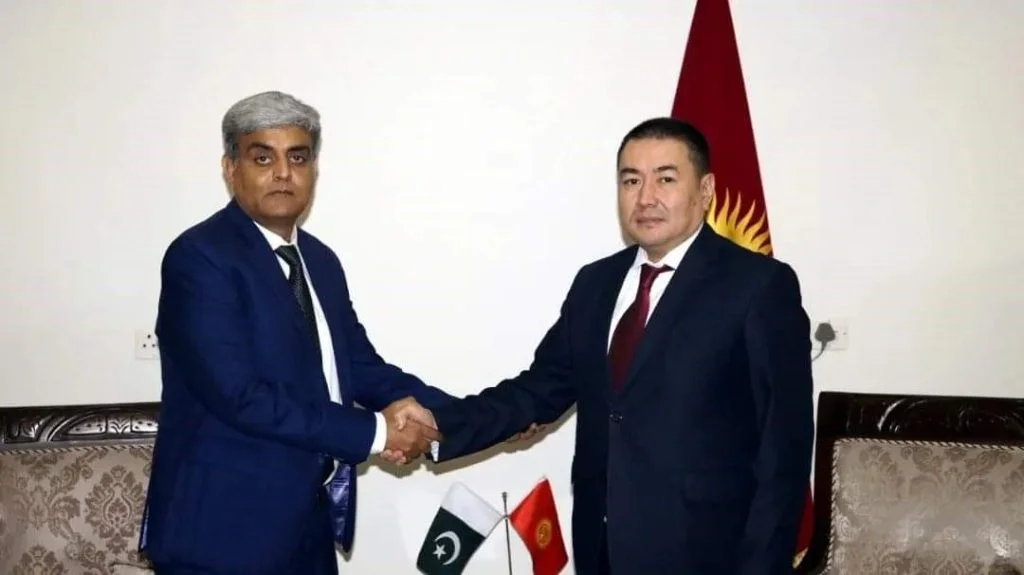In a significant move toward regional academic integration, Pakistan and Kyrgyzstan have reaffirmed their commitment to deepening cooperation in the field of medical education. Through high-level diplomatic and academic discussions, both nations are seeking to enhance student mobility, improve educational quality, and align healthcare training systems.
The renewed focus on academic collaboration emerged during bilateral meetings aimed at strengthening ties across various sectors, with medical education emerging as a top priority.
High-Level Dialogue Sparks Academic Realignment
A Kyrgyz delegation comprising senior officials and university rectors visited Pakistan’s top medical regulatory authority earlier this year. The meetings centered around a common objective: to raise the academic standards and credibility of medical graduates studying in Kyrgyzstan and intending to practice in Pakistan.
Key discussion points included:
- Defining transparent admissions criteria for Pakistani students enrolling in Kyrgyz medical universities
- Developing standardized accreditation frameworks to ensure institutional recognition
- Aligning foreign graduate credentials with national licensing requirements in Pakistan
The dialogue marks a decisive step toward eliminating inconsistencies that previously led to confusion among students studying abroad and challenges during the medical licensing process back home.
PMDC Sets the Tone for Quality and Accountability
Pakistan’s medical regulatory body reiterated that only graduates from officially recognized foreign medical institutions would be eligible for provisional registration and national licensing exams. This stance reflects a broader policy direction aimed at safeguarding educational quality and protecting patients by ensuring doctors have received globally relevant and locally accepted training.
Officials further emphasized the importance of ensuring that Pakistani students studying abroad receive education equivalent to national standards, and that foreign institutions operate under transparent, merit-based systems.
Areas of Academic Collaboration Identified
To solidify and expand academic integration, the two countries are now working toward:
- Joint degree programs and dual-certification opportunities
- Faculty and student exchange programs to promote academic diversity and collaborative learning
- Mutual recognition of qualifications aligned with international standards
- Capacity-building efforts including joint training workshops, curriculum development, and research initiatives
These initiatives are being designed to foster stronger institutional linkages, promote innovation in medical pedagogy, and create pathways for collaborative research between Pakistani and Kyrgyz institutions.
Benefits for Students and the Healthcare Ecosystem
This partnership is expected to unlock multiple benefits for students, faculty, and both countries’ healthcare systems. These include:
- Clear and regulated pathways for Pakistani students seeking quality education abroad
- Enhanced opportunities for clinical exposure, research, and global networking
- A better-trained healthcare workforce equipped with international standards and localized competencies
- Promotion of soft diplomacy through cultural and academic exchanges
In the long term, such collaborations are poised to contribute to regional healthcare resilience, improve human capital development, and support Pakistan’s broader educational diplomacy goals.
Summary Table
| Area of Collaboration | Details |
|---|---|
| Admissions Policy | Standardized and merit-based entry for Pakistani students in Kyrgyz universities |
| Graduate Registration | PMDC requires foreign degrees to meet national licensing standards |
| Joint Academic Programs | Proposed partnerships on degrees, curriculum design, and certification |
| Faculty & Student Exchange | Bilateral exchange to enrich teaching and learning experiences |
| Quality Assurance Focus | Emphasis on accreditation, ethics, and global benchmarking |
Final Thoughts
The growing partnership between Pakistan and Kyrgyzstan in medical education reflects a forward-thinking strategy rooted in academic credibility, international cooperation, and mutual capacity-building. It underscores both nations’ commitment to cultivating highly qualified healthcare professionals who meet evolving global and regional standards.
As the collaboration evolves, it promises to provide a structured and secure pathway for aspiring doctors, while supporting both countries’ healthcare systems through stronger training, oversight, and innovation.



Comments (0)
No comments yet. Be the first to comment!
Leave a Comment